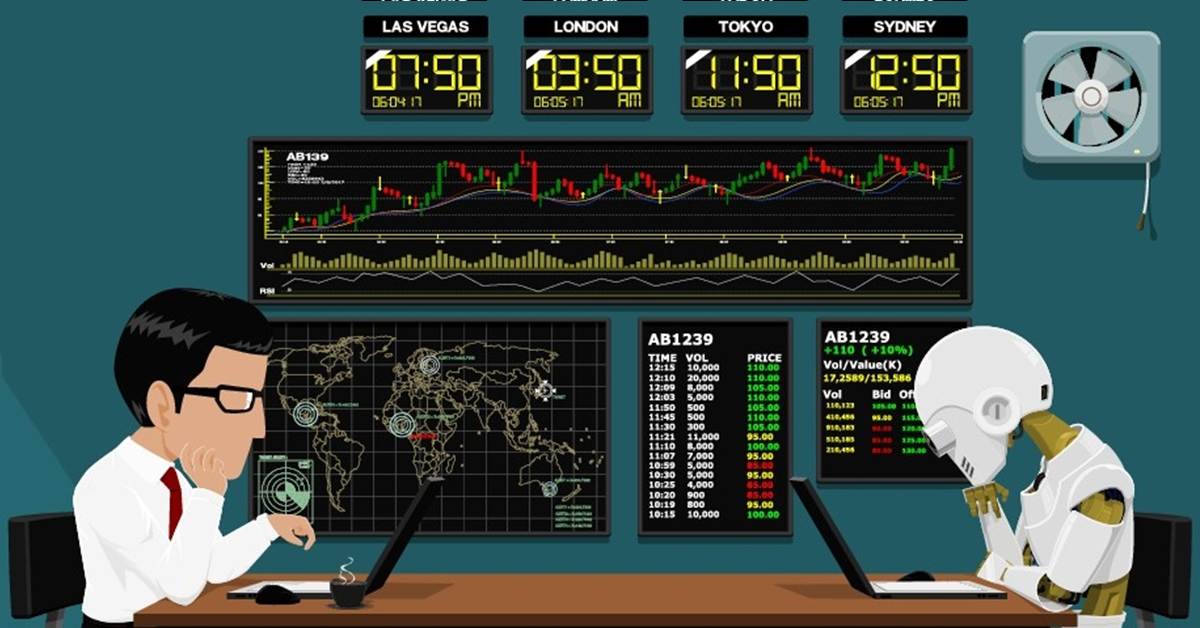The world of equity trading has changed. Dramatically over the past few years, with technology being the key to this transformation. As markets are becoming faster, more integrated, and more dependent on automation worldwide, traders and institutions are conforming to new tools and trends to remain competitive.

From machine learning-based analytics to mobile-first platforms, the growth of fintech is transforming how stocks are purchased, sold, and analyzed. Whether you’re an individual trader or a Dubai-based forex company looking into stock market diversification, catching up with these changing trends can keep you ahead of the competition.
Seven major trends in equity trading technology to watch follow:
1. AI and Machine Learning for Predictive Analysis
Artificial Intelligence (AI) and Machine Learning (ML) are transforming the way traders decide. They can review enormous amounts of past data to identify buried patterns, observe anomalies in markets, and even forecast possible movements ahead of time.
For instance, AI algorithms are able to scan news, earnings reports, and social media in real-time to measure sentiment and make corresponding position recommendations. With speed and insight making a market, using AI provides traders with an unmistakable advantage.
Even currency market–oriented firms, historically — like a forex firm in Dubai — are adding AI models to cross-analyze correlations of forex pairs and equity markets, unlocking multi-asset strategies.
2. Cloud-Based Trading Platforms
Cloud computing has brought high-performance trading within everyone’s reach. Traders no longer require costly infrastructure or siting near major exchanges. Cloud-based platforms provide scalability, flexibility, and real-time synchronization across devices.
These platforms also enhance disaster recovery, minimize latency, and facilitate quicker updates. For frequent travelers or portfolio managers across borders — such as executives working at a Dubai-based forex firm looking to explore global equities — having the capability to safely access platforms anywhere, anytime is a game-saver.
3. Mobile-First Trading Experience
The move to mobile trading is still gaining pace. Traders now desire to keep track of markets, scan charts, and execute trades — all on their mobile phones. This has fueled a surge in innovation in mobile applications meant for an effortless equity trading experience.
From voice-activated order placements to biometric logins, mobile apps today provide almost the same capability as desktop terminals. This trend is especially suitable for retail investors and professionals who demand agility and convenience. FX and equity market companies are now combining both into a single mobile platform to satisfy client demands.
4. Algorithmic and Quant-Based Trading
Algorithmic trading isn’t new, but it’s becoming more mainstream thanks to accessible tools and data sources. These automated strategies execute trades based on pre-set criteria — like price, volume, or timing — and are widely used by institutions, hedge funds, and increasingly by savvy retail investors.
Quantitative trading, which relies on mathematical models and statistical analysis, is also growing. These techniques reduce emotional bias, improve consistency, and can run 24/7.
Numerous institutional traders — some with roots as a
— are now implementing these approaches on equities, commodities, and digital assets for arbitrage opportunities and portfolio diversification.
5. Multi-Asset Platform Integration
As more investors move into stock, bond, forex, and cryptocurrency trading, there’s increasing demand for integrated platforms that provide access to all major asset classes in a single location. It simplifies the user experience and enables traders to track correlations between markets.
For instance, an exchange rate movement may affect a company’s profits and, in extension, its share price. A Dubai forex firm handling both FX and equity accounts can gain a lot from such unification, eliminating platform hopping and data silos.
Consolidated dashboards, real-time performance monitoring, and cross-market analysis tools are fast becoming the normal functionalities in modern-day equity trading platforms.
6. Decentralized Finance (DeFi) and Tokenized Equities
DeFi is disrupting traditional finance by enabling decentralized trading of assets without intermediaries. A fast-emerging trend is the tokenization of real-world assets — including equities — which allows fractional ownership, 24/7 trading, and enhanced liquidity.
Although in nascent form, platforms providing tokenized equivalents of widely held stocks are starting to appear, allowing users to trade equity-like products on blockchain technology. For businesses and traders already engaged with cryptocurrency — such as those coming from a forex company in Dubai business model — tokenized equities represent a new era of innovation.
7. ESG and Ethical Trading Tools
Environmental, Social, and Governance (ESG) considerations are becoming increasingly integral to investment approaches. As the demand for socially responsible investing increases, technology platforms are now implementing ESG scores and filters as part of their research and screening tools.
Investors can now screen stocks by carbon impact, diversity statistics, or supply chain openness — matching their portfolios to their principles. For global investors, such as in the fast-changing markets of the UAE, the inclusion of ESG analysis on equity trading platforms brings both moral substance and strategic worth.
Final Thoughts
The equity trading technology landscape is transforming quickly than ever before — fueled by mobile accessibility, AI, automation, and growing needs for multi-asset capabilities. As an individual investor or a forex firm in Dubai looking to venture into equities, staying on top of these trends isn’t only beneficial — it’s a must.
As the doors open wider to international markets and trading technology advances, embracing innovation will distinguish winners in a more competitive market.
The future of equity trading is in frictionless, data-sourced, and smart platforms — and those who move early will be in the best shape to succeed.




